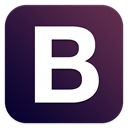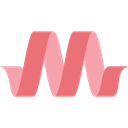Top MUI Alternatives: Discover Your Next Frontend Framework
MUI is a lightweight HTML/CSS/JS framework that embraces Google's Material Design guidelines, offering a streamlined approach to building web interfaces. While it's an excellent tool, developers often seek alternatives due to specific project requirements, performance needs, or a desire for different design philosophies. This guide explores the best MUI alternatives, helping you find the perfect fit for your next web development project.
Best MUI Alternatives
Looking for a framework that aligns better with your vision? Here are some of the top contenders that offer similar, and often enhanced, functionalities to MUI, catering to diverse development needs and preferences.

Bootstrap
Bootstrap is a widely recognized open-source collection of tools for creating browser sites and applications. As a robust HTML and CSS-based framework with optional JavaScript extensions, it offers responsive design, active development, clean design, and a wealth of premade templates. It's a fantastic MUI alternative for those seeking a comprehensive, self-hosted solution for rapid web development.

Bulma
Bulma is a modern CSS framework based on Flexbox, offering a lightweight and modular approach to web design. It's a free and open-source MUI alternative, ideal for web and self-hosted projects, boasting responsive design, HTML5 support, and a mobile-friendly focus, making it excellent for web development.

Foundation
Foundation is an easy-to-use, powerful, and flexible framework for building rapid prototypes and production code on any kind of device. As a free and open-source web-based CSS framework, it serves as a strong MUI alternative for developers prioritizing flexibility and efficiency in their projects.

Materialize
Materialize is a modern responsive CSS framework based on Google's Material Design, making it a direct competitor and excellent MUI alternative. It's free and open-source, perfect for web projects, and offers strong features like mobile framework capabilities and comprehensive web development tools, maintaining the Material Design aesthetic.

UIkit
UIkit is a lightweight and modular front-end framework for developing fast and powerful web interfaces. This free and open-source web-based UI framework provides a full suite of HTML/CSS and JavaScript components, making it a comprehensive MUI alternative for those seeking a more extensive library than Bootstrap or Foundation.

Skeleton
Skeleton is a small collection of CSS & JS files designed for rapidly developing sites that look beautiful at any size. It's a free and open-source web-based CSS framework with a responsive grid down to mobile, making it an ideal lightweight MUI alternative for quick development without unnecessary bloat.

HTML5 Boilerplate
HTML5 Boilerplate is a rock-solid default for HTML5 development, offering a professional base HTML/CSS/JS template for fast, robust, and future-proof sites. While not a direct component library like MUI, this free and open-source web platform serves as a foundational MUI alternative, baking in best practices like cross-browser normalization and performance optimizations from the start.

Element UI
Element UI is a Vue 2.0 based component library for developers, designers, and product managers. As a free and open-source MUI alternative available for web and self-hosted environments, it offers a robust CSS framework, making it perfect for projects leveraging Vue.js and seeking a comprehensive UI toolkit.

Spectre.css
Spectre.css is a lightweight, responsive, and modern CSS framework designed for faster and extensible development. This free and open-source MUI alternative for web and self-hosted projects offers a clean CSS framework with strong responsive design capabilities, making it excellent for web development where minimalism and speed are key.

Gridlex
Gridlex is a very simple CSS grid system based on Flexbox, designed to quickly create modern layouts and submodules. As a free and open-source MUI alternative available for web and self-hosted use, it focuses purely on responsive grid functionality, making it a great choice for developers who prefer a minimalist approach to their CSS framework and want to build layouts efficiently.
Ultimately, the best MUI alternative depends on your specific project requirements, preferred technology stack, and design goals. Explore these options, consider their features, and choose the framework that best empowers you to build exceptional web experiences.